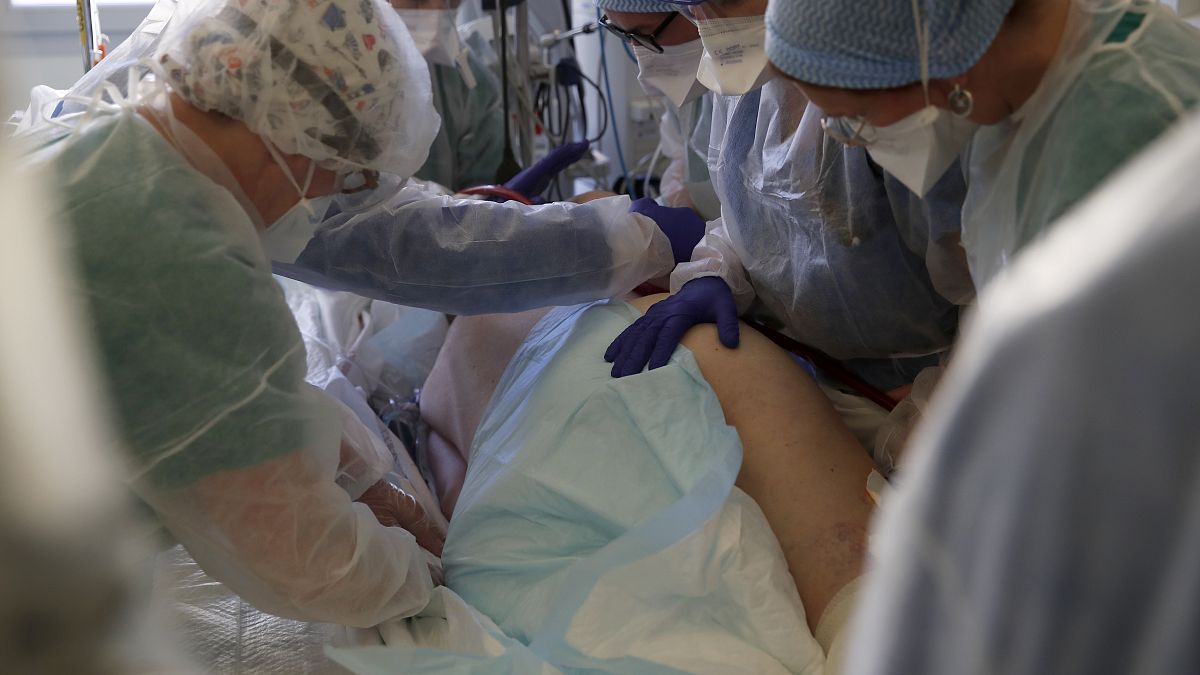More than 1.6 million people contracted COVID-19 in WHO Europe's 51 countries last week — the sixth weekly rise in a row.
The rollout of the COVID-19 vaccine in Europe is "unacceptably slow" as the number of new cases across the region increased for the sixth consecutive week, the World Health Organization (WHO) European office warned on Thursday.
According to the UN agency, more than 1.6 million people contracted COVID-19 in WHO Europe's 51 countries last week, the sixth weekly rise in a row.
"Only five weeks ago, the weekly number of new cases in Europe had dipped to under one million, but now the region's situation is more worrying than we have seen in several months," Dr Dorit Nitzan, Regional Emergency Director for Who Europe, said in a statement.
The increase was observed in every age group, except in people 80 years or older which WHO Europe said reflects "early signs of the impact of vaccination."
Data from the UK show that the lives of at least 6,000 people over 70 have been saved since the country launched its vaccination campaign in early December.
"Vaccines present our best way out of this pandemic. Not only do they work, they are also highly effective in preventing infection. However, the roll-out of these vaccines is unacceptably slow," WHO Europe chief, Dr. Hans Kluge, said.
"And as long as coverage remains low, we need to apply the same public health and social measures as we have in the past, to compensate for delayed schedules.
"Let me be clear: we must speed up the process by ramping up manufacturing, reducing barriers to administering vaccines, and using every single vial we have in stock, now," he added.
To date, only 10 percent of the region's total population have received at least one dose of the vaccine, and just four percent have been fully immunised.
Vaccination has started in every high-income country in the region but in just 60 percent of lower-and lower-middle-income countries, the WHO highlighted.
Ten middle-income countries have also received doses through the COVAX mechanism, a vaccine sharing programme co-led by WHO and to which the EU is the second-biggest contributor.
"In the past weeks, we've seen both remarkable solidarity across borders in the region as well as countries hoarding vaccines. Vaccinating healthcare workers and the elderly in every country is everybody’s moral responsibility," Kluge said.
"While acknowledging the intent of governments to protect their own populations, before the vaccines are extended to other age groups I strongly urge governments to share excess doses of WHO-approved vaccines with COVAX or with countries in need, once healthcare workers and the most vulnerable have been vaccinated. Not doing so is self-defeating," he added.
Nearly 578 million doses of the vaccines have been administered worldwide, according to Our World in Data. Nearly 250 million of those have been administered in the US, UK and EU/EEA.
Germany is hoping to ramp up its vaccination campaign by making shots available in doctors' practices. Health Minister Jens Spahn told reporters in Berlin on Thursday that it would be an important step in giving people easier access to vaccines.
"Despite it being the week before Easter, 35,000 doctors' practices have requested vaccine doses for the coming week. In total, they have ordered 1.4 million vaccine doses. We will be able to deliver 940,000 doses next week."
Earlier this week, Germany halted the use of the AstraZeneca coronavirus vaccine in people under 60 due to concerns that it might cause rare blood clots in a small number of recipients.
Asked if he would be prepared to get the AstraZeneca vaccine, Spahn said he would accept it in principle but only once it is made available to his age group.
WHO Europe also called on countries to implement public health and social measures to protect populations that have not yet received the vaccine and reduce the strain on healthcare systems.
"The likelihood of new variants of concern occurring increases with the rate at which the virus is replicating and spreading, so curbing transmission through basic disease control actions is crucial," Dr Nitzan said.
More than half of the 51 counties WHO Europe monitors are in partial or full lockdown.
France is to enter its third national lockdown on Saturday as the number of COVID-19 patients in intensive care surged over 5,000 for the first time in 11 months.
